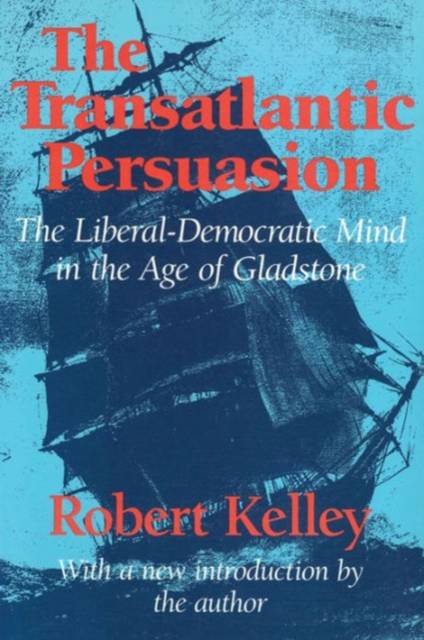
En raison d'une grêve chez bpost, votre commande pourrait être retardée. Vous avez besoin d’un livre rapidement ? Nos magasins vous accueillent à bras ouverts !
- Retrait gratuit dans votre magasin Club
- 7.000.000 titres dans notre catalogue
- Payer en toute sécurité
- Toujours un magasin près de chez vous
En raison de la grêve chez bpost, votre commande pourrait être retardée. Vous avez besoin d’un livre rapidement ? Nos magasins vous accueillent à bras ouverts !
- Retrait gratuit dans votre magasin Club
- 7.000.0000 titres dans notre catalogue
- Payer en toute sécurité
- Toujours un magasin près de chez vous
The Transatlantic Persuasion
Liberal-Democratic Mind in the Age of Gladstone
Robert Kelley
Livre broché | Anglais
59,45 €
+ 118 points
Description
This pioneering work is the basic and largely unmatched study of the single transatlantic community of thought shared by nineteenth century British and Canadian Liberals and American Democrats. The result of more than tens years of comparative research, The Transatlantic Persuasion explores the roots of those ideas hat comprise a coherent Liberal-Democratic worldview: ideas about society, human relations, the economy, equality, liberty, the ethnocultural dimension of life, the proper role and nature of government, and the world community. In Britain, Canada, and the United States, Liberal-Democrats saw themselves as battlers against social evils caused by corrupt, self-seeking aristocracies. This was true whether their power was based on business wealth, land, or vested religious privilege; and in all three countries they developed practically identical public policy agendas.Widely praised for its graceful narrative style, its intriguing political and cultural analysis, and its sensitive feeling for the nuances of personality and the human condition, The Transatlantic Persuasion finds that cultural forces such as ethnicity, religion, and style of life have played an astonishingly central role in politics. Kelley sees a similar confrontation within each of the three countries between the core culture, including the Establishment and its institutions, and the outgroups, the culturally, socially, and often economically peripheral peoples. In Britain, for example, the Tories (Conservatives) were the aggressively dominant English, who look down on such minorities as the Scots and the Irish. These outgroups gathered within Gladstone's Liberal party, and from this base fought for equal status and treatment against prejudices. Similar patterns in Canada and the United States led to Kelley to conclude that these cultural facts of life were as important and powerful in public life as those that were purely economic in nature.Greeted with praise on its original publication in the general media as well as in major scholarly journals, The Transatlantic Persuasion performs history's highest office: It explains the present by placing it in the deep perspective of time, thus demonstrating how the past prefigures and shapes current events.
Spécifications
Parties prenantes
- Auteur(s) :
- Editeur:
Contenu
- Nombre de pages :
- 486
- Langue:
- Anglais
Caractéristiques
- EAN:
- 9780887386350
- Date de parution :
- 31-01-90
- Format:
- Livre broché
- Format numérique:
- Trade paperback (VS)
- Dimensions :
- 152 mm x 229 mm
- Poids :
- 899 g

Les avis
Nous publions uniquement les avis qui respectent les conditions requises. Consultez nos conditions pour les avis.






